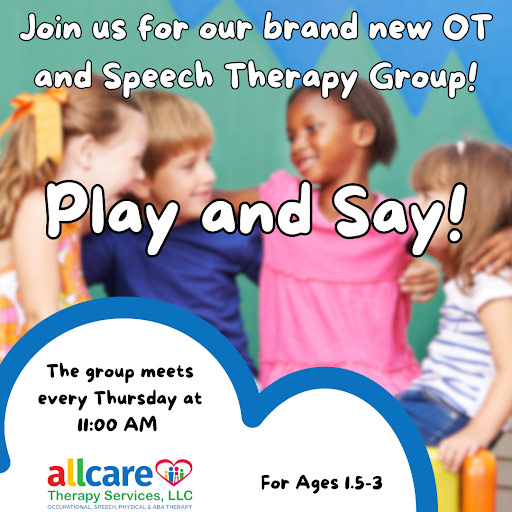
Play and Say Kids Group
Thursdays at 11:00 with certified speech pathologists and occupational therapists.
Ages 1 1/2 – 3
Cost $25
Focus on receptive and expressive language, social skills, play skills and sensory integration

Thursdays at 11:00 with certified speech pathologists and occupational therapists.
Ages 1 1/2 – 3
Cost $25
Focus on receptive and expressive language, social skills, play skills and sensory integration
We recognize the importance of continuing your child’s therapy so we are now offering teletherapy to continue your child’s program. Please email us at [email protected] for more information. Please provide us with your updated email address to receive the necessary information.
Learn More
We are offering educational and tutoring services to children from birth through high school. Services are offered in-person at Allcare Therapy Services or virtually.
Our team will provide individualized instruction with IEP based goals, parental concerns, and training, consultation for parents, and a team approach to education. We will focus our program on the learning style that best suits your child. Goals will be reinforced for your child’s IEP to enhance and supplement virtual learning. Goals will be met with a multi-disciplinary approach.
